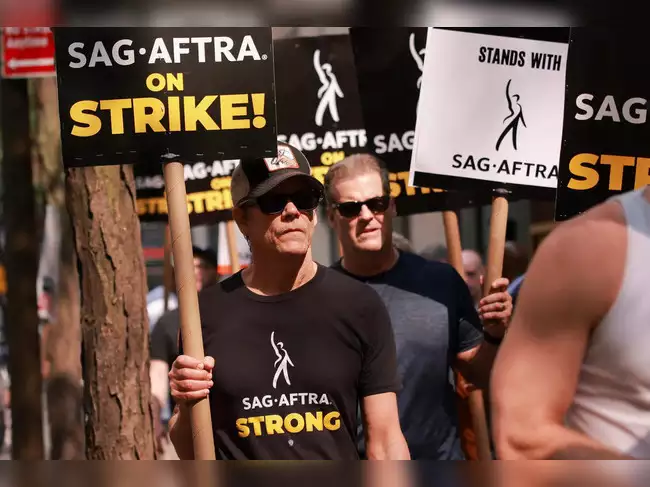
Otto Barenberg is a student at Harvard Law School and the Digital Director of OnLabor.
In today’s news and commentary, SAG-AFTRA wins AI protections; DeSantis signs Florida bill preempting local employment regulation; and NLRB judge says Whole Foods subpoenas violate federal labor law.
On Friday, the Screen Actors Guild–American Federation of Television and Radio Artists (SAG-AFTRA) reached a tentative agreement with major record labels, including Sony Music Entertainment and Warner Music Group, to establish artificial intelligence (AI) safeguards, alongside wage and benefit increases. The agreement requires record labels to obtain artists’ informed consent and provide compensation for songs that use AI-generated “digital replicas” of an artist’s voice. Only humans qualify as “artists” or “singers” under the agreement. SAG-AFTRA National Executive Director & Chief Negotiator Duncan Crabtree-Ireland lauded the consent and compensation requirements, saying, “SAG-AFTRA and the music industry’s largest record labels have reached a groundbreaking agreement establishing, for the first time, collective bargaining guardrails assuring singers and recording artists ethical and responsible treatment in the use of artificial intelligence in the music industry.” AI was a major flashpoint in SAG-AFTRA’s 118-day-long strike last summer, which culminated in a movie studio contract containing similar generative AI provisions.
On Thursday, Florida Governor Ron DeSantis (R) signed into law a bill (HB 433) preempting local regulation of employee scheduling policies, heat exposure protections, minimum wages, and employee benefits. Beginning July 1, Florida cities and counties may not establish employee scheduling regulations or heat exposure protections that exceed the state or federal baseline, nor may localities factor an employer’s scheduling or heat exposure policies into their procurement decisions. Additionally, starting September 30, 2026, Florida localities may not maintain minimum wages above the state level, choose government contractors based on wage or benefit levels, or otherwise attempt to regulate wages or benefits through government contracts. (Under a 2020 ballot measure, Florida’s statewide minimum wage will rise to $13 per hour in September and reach $15 per hour in 2026, a level still markedly lower than the state’s living wage.) The preemption scheme follows a series of Florida laws weakening child labor protections and targeting public sector unions.
Finally, a National Labor Relations Board judge ruled that Whole Foods violated federal labor law by subpoenaing the affidavits and group chat messages of workers terminated for wearing Black Lives Matter face masks. Administrative Law Judge Susannah Merritt held that Whole Foods’ attempts to access workers’ confidential testimony and messages prior to a Board hearing were “inherently coercive and unlawful” under long-established Board precedent. Under Merritt’s order, the Amazon-owned grocer must pay the legal fees workers incurred as a result of the company’s unlawful conduct. Whole Foods issued the subpoenas in its defense of a 2021 racial discrimination lawsuit under Title VII of the 1964 Civil Rights Act, in which a Massachusetts federal court sided with the grocer in rejecting its former employees’ racial bias and retaliation claims. The workers have since appealed that ruling to the First Circuit, which heard oral argument in December 2023.






Daily News & Commentary
Start your day with our roundup of the latest labor developments. See all
February 20
An analysis of the Board's decisions since regaining a quorum; 5th Circuit dissent criticizes Wright Line, Thryv.
February 19
Union membership increases slightly; Washington farmworker bill fails to make it out of committee; and unions in Argentina are on strike protesting President Milei’s labor reform bill.
February 18
A ruling against forced labor in CO prisons; business coalition lacks standing to challenge captive audience ban; labor unions to participate in rent strike in MN
February 17
San Francisco teachers’ strike ends; EEOC releases new guidance on telework; NFL must litigate discrimination and retaliation claims.
February 16
BLS releases jobs data; ILO hosts conference on child labor.
February 15
The Office of Personnel Management directs federal agencies to terminate their collective bargaining agreements, and Indian farmworkers engage in a one-day strike to protest a trade deal with the United States.